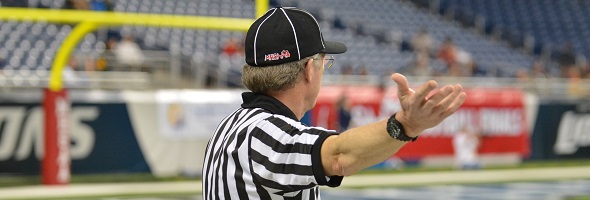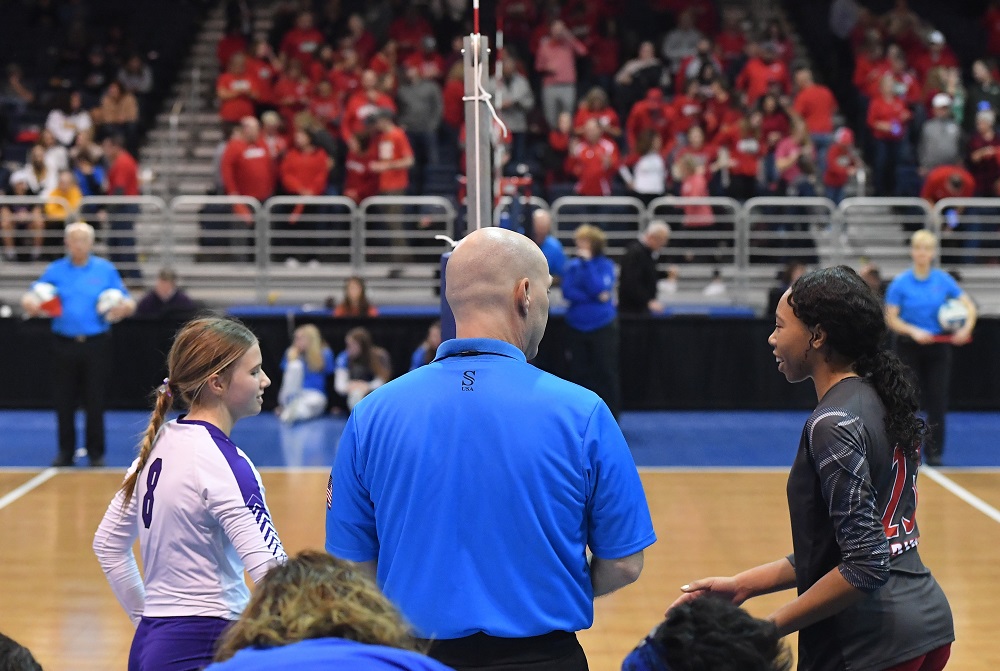
Be the Referee: Concussion Protocol
September 4, 2014
This week, MHSAA assistant director Mark Uyl explains the football official's role in making school personnel aware that an athlete may have sustained a concussion.
"Be the Referee" is designed to help educate people on the rules of different sports, to help them better understand the art of officiating and to recruit officials. The segment can be heard on Mondays, Wednesdays and Fridays during the school year on The Drive With Jack Ebling on WVFN-AM, East Lansing.
Below is this week's segment - Concussions - Listen
Today we are going to talk about concussions. It is important to know that a game official will never make a diagnosis of whether or not an athlete has suffered a concussion. However, those game officials do have an important role to play when it comes to keeping athletes safe.
Officials must be not only aware during the play but especially just after the play for any athlete that appears to be disoriented, unsteady on their feet, or even appears dizzy to where the game must be stopped immediately, the coaching staff notified and then officials need to allow the coaches, working with the school's medical personnel, to make the best decision for the athlete involved.
Past editions
Aug. 25 - Targeting - Listen

Be the Referee: Volleyball Unplayable Areas
By
Paige Winne
MHSAA Marketing & Social Media Coordinator
November 14, 2023
Be The Referee is a series of short messages designed to help educate people on the rules of different sports, to help them better understand the art of officiating, and to recruit officials.
Below is this week's segment – Volleyball Unplayable Areas - Listen
We’re on the volleyball court today when my teammate’s second touch sends the ball towards the bleachers, still on our side of the net. I take off running to attempt to hit it over and jump onto the first row of the stands in order to reach it. I am able to volley the ball over the net, and remarkably it falls to the floor untouched for a point. Or is it?
It is not. The bleachers are not a playable area in volleyball, so my hit wouldn’t count. It would actually be a point for the other team. Despite my best parkour efforts, it’s all for naught.
With player safety in mind, there are other unplayable areas in volleyball including the area behind the benches and the space between the benches and scorer’s table.
Before each match, the officials go over playable and unplayable areas with both coaches.
Previous Editions
Nov. 7: Pass/Kick Off Crossbar - Listen
Oct. 31: Cross Country Interference - Listen
Oct. 24: Soccer Overtime - Listen
Oct. 17: Tennis Spin - Listen
Oct. 10: Blocked Kick - Listen
Oct. 3: Volleyball Double & Lift - Listen
Sept. 26: Registration Process - Listen
Sept. 20: Animal Interference - Listen
Sept. 13: Feet Rule on Soccer Throw-In - Listen
Sept. 6: Volleyball Jewelry - Listen
Aug. 30: Football Rules Similarities - Listen
Aug. 23: Football Rules Differences - Listen

